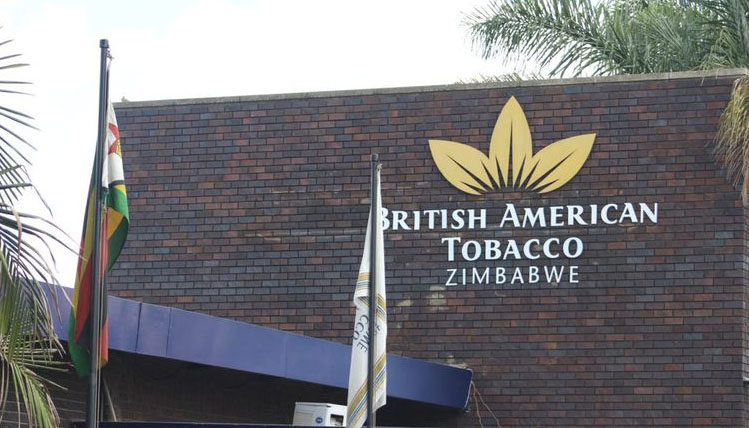
The Sunday Mail

The country’s largest cigarette manufacturer, British American Tobacco Zimbabwe, contributed US$113,1 million in value added to the Zimbabwean agricultural sector for the period ended December 31, 2017, a study has revealed.
The Zimbabwe Stock Exchange listed entity engaged consulting firm, Econex, to assess its direct and economic multiplier effects on the country’s economy in order to establish the economic significance of the company.
An economic impact assessment measures the contribution of a company within a sector to the economy as it captures the direct contribution as well as the multiplier effects through direct and induced impacts.
To determine these multiplier effects, this study measured the direct effects (for example, a farmer is paid for his tobacco leaf crop), indirect effects (the farmer uses income to purchase inputs for the next season) and induced effects (the farmer and employed workers use some of their income to buy food and household items).
Presenting the findings last week, BATZ finance director Mr Leslie Malunga said the study highlighted the significant role that the company plays in Zimbabwe’s economy.
“The study demonstrated the scale of the company’s direct impact as well as the upstream and downstream multiplier effects of its operations,” said Mr Malunga.
According to the Econex report, BATZ contributed US$113,1 million or 10,7 percent of Zimbabwe’s total value added from the agricultural sector.
In terms of economic wide impact, Mr Malunga said BATZ contributed US$118,9 million, or 0,8 percent to Zimbabwe’s GDP.
“BATZ operations contribute an even more substantial total of US$193 million to Zimbabwe’s GDP — including tax income of US$74 million,” he said.
The study also revealed BATZ, which has an 82 percent cigarette market share in the country, adds US$1,63 million to the country’s GDP for every US$1 million of capital investment.
Through this, BATZ also creates 615 jobs in the Zimbabwean economy.
“Due to the 14 percent purchase of the national tobacco crop by BATZ Group, 32,960 agricultural jobs are sustained across the country in addition to 5,794 retail jobs that are sustained as a result of the sale and distribution of tobacco products.
“For every BATZ direct employee, 347 additional jobs were collectively sustained, that is formal and informal sector, upstream and downstream.”
BATZ employs 129 employees and support a total 44 768 jobs or 0,6 percent of Zimbabwe’s total employment.
As a result, the study estimates that BATZ contributed US$52,6 million towards household income in 2017.
This spreading of economic benefits is probably made possible by the fact that BATZ needs products and services of a myriad of other participants in the economy from suppliers of equipment and production inputs such as tobacco leaf, to providers of transport, among others.
In 2017 for example, BATZ is reported to have purchased 14 percent of all raw tobacco leaf produced within Zimbabwe, which equated to 32 million kilogrammes.
In terms of contribution to tax within Zimbabwe’s tobacco sector, BATZ is the largest payer of excise tax in Zimbabwe, contributing 82 percent in 2017.
Excise duties made the third most substantial contribution to Zimbabwe’s total tax revenue with duty on beer and airtime 7 percent and 8 percent respectively. In total, the most significant contribution to tax revenue comes from BATZ itself — a large portion was also contributed by direct suppliers.
The company also generated exports both up and down the value chain, to the value of US$73,6 million or 1,8 percent of the country’s total exports.
Meanwhile, an upsurge of marketing activities during the period under review saw the cigarette manufacturer record double digit growth in volumes sold for the period.
Total sales volumes grew by 21 percent to 580 million sticks versus 478 million sticks for the comparative prior year.
This was driven by growth in all segments.
The growth in volumes resulted in total revenues increasing to US$19,9 million, up 19 percent from what was achieved prior year comparative.
Gross profit was up 22 percent to US$14,6 million from US$11,9 million with gross margins improving to 73 percent from 71 percent last year.
Profit before income tax was up 58 percent to US$10,3 million from US$6,5 million after administrative expenses came 37 percent lower to US$1,4 million from US$2,3 million.
Net Profit attributable to shareholders for the year was US$7,4 million, which is an increase of US$2,8 million or 61 percent, compared to the same period last year.



